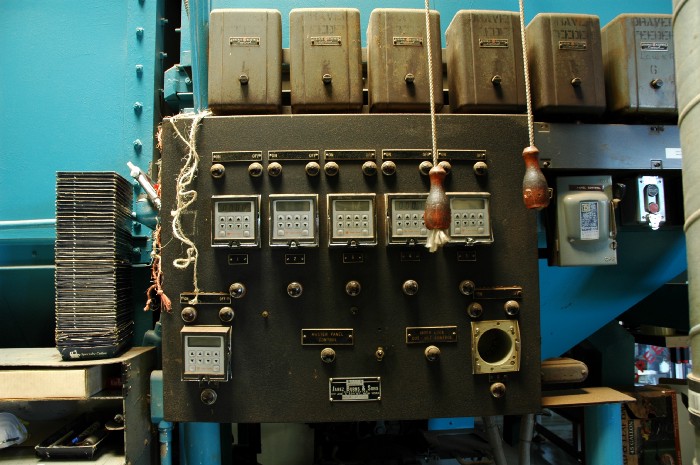
I don’t like nice interfaces. I never have. I always found technologies easier to use when they don’t try to humanize themselves for me. Worse, when they do try to make themselves softer and squishier and “easier” for humans, I get concerned about losing touch with what they’re really doing for us and to us.
Computers aren’t the only technologies for which this is true, but they’re an easy example. Back in the 1980’s, to use a computer was to program a computer. Everyone knew the “command line,” which was how you got the computer to do anything. Even word processing programs appeared as simple text with no visible formatting. Everything was a typed command, and documents looked a bit like html code.
While that may have taken some getting used to, it also made the things going on behind the screen very accessible. We users had access to pretty much everything a computer programmer did. There were even little files called “autoexec.bat” that listed all the ways you would want to customize the way your computer would startup for you.
Problem is, command lines and autoexec.bat files are considered “counter-intuitive.” They take a few hours, or sometimes even a couple of days to learn. So while they’re extremely efficient, ultra-simple, and open to our intervention, they are not considered consumer friendly.
That’s why the computer industry moved from the PC to the what-you-see-is-what-you-get world of metaphorical files, folders, a desktop, and dragging and dropping things, and the Internet went from Usenet and IRC to the World Wide Web. Pictures and symbols are easier for people to use.
But all these icons and metaphors put a much greater distance between the role of the user and that of the programmer. The more user-friendly the interface, the more opaque it is, and the more easily it disguises the functions of the machine. This opacity is at least part of the reason so many people blindly adopted the tech industry’s more nefarious tools and platforms. It looked like Facebook was here to help us make friends, when its actual functions were steered toward entirely different priorities.
So today, I’m happy for technology to be more “humane,” but not if that means disguising entirely inhumane algorithmic manipulation in more pleasant forms. If a platform like Twitter is stressing you out and raising your cortisol levels, maybe that’s a good thing. It’s your body’s warning that something awful is going on. If they really figured out how to repackage or micro-dose Twitter’s impact on the human psyches so that we do not feel sick after a session on the platform, they’re just hiding bullying and gaslighting that’s occurring there anyway.
We hide the technology and technicians at our peril. I’ve held off on commenting on this year’s Oscars’ violence for a bunch of reasons, but from my perspective, this is what you get when you try to pretend something isn’t there. I’m not talking about the racial inequities at those awards, but the demotion of the tech crews! This was the first year of the Oscars when they gave out most of the major technical awards at an earlier ceremony. Sure, they wanted more primetime TV minutes for the antics between movie stars, but it’s also as if they were trying to hide the whole dirty business of technology from audiences — as if people don’t want to engage with the mechanisms behind the artifice.
Without any acknowledgment of the social and technological construction that comprises Hollywood movies — without a moment to reflect on the technologies and techniques through which our films build fantasies — they are rendered no better than reality TV. It just “happens.” And just like Mob Wives or the Real Housewives, the only direction for things to go at that point is toward physical violence. The Best Actor Award went to the guy who did what needed to be done in that media environment.
It’s all still artifice, but accepted as reality. To the audience, the person on stage is not playing a character; they are the character. This is entertainment for a fascist society that has lost the ability to distinguish between history and mythology, leadership and authoritarianism, drama and violence.
While Hollywood must acknowledge the special effects crew, the motion capture technicians, and the foley artists, our interface designers need to think long and hard about the benefits of putting technologies behind interfaces that deny their underlying programming. It’s okay to show your teeth when you smile.